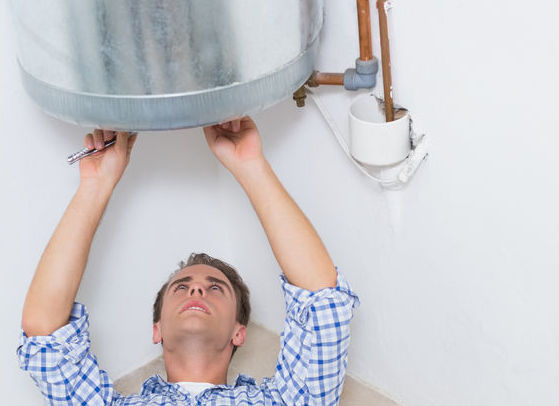What Do New Regulations on Hot Water Heaters Mean For You?
If you have an aging hot water heater over 10 years old or one that is giving you problems, now could be the best time to replace it. New energy efficiency regulations are being put in place that could increase the costs of replacing your system. These costs can be negligible to some, but to others, the new systems could pose a big problem.
Higher energy efficiency for smaller units often comes from added insulation and shielding. These added materials increases the girth of units by around four inches and could increase the height by four inches or more.
For units that are packed into small storage spaces or compartments that are already a tight squeeze, waiting to replace your water heater could end up being a lot more trouble than you bargained for. Anyone with an aging hot water or one that is on the fritz should consider replacing it soon to avoid significant added installation costs among other headaches.
The New Regulations Explained
An update to the National Appliance Energy Conservation Act (NAECA) requires hot water heater manufacturers to adhere to new minimum standards for efficiency. These units are great news for the environment and even better news for monthly energy costs. Estimates show that the typical household spends around 20 percent of their total monthly energy on hot water heating alone. With these new units, homeowners could see savings of three to ten percent for smaller units and 25 to 50 percent for units 55 gallons and over.
While these changes may be good news in the long run, they can spell added costs for homeowners who are looking to replace their systems. As of April 16, manufacturers will not be allowed to produce the older standard of hot water heater. The already-manufactured units that are available for sale will still be legal to buy and install, but supplies will be short. Market estimates suggest that the current supply of old-style hot water heaters could run out in as little as six weeks.
The units replacing them will be more energy efficient as a result of added metal insulation and other technologies. These additions add to the cost, size and weight of the unit. Some units will cost around 30 percent more than their older, less efficient counterparts. The added weight will also increase the installation costs by several hundred dollars.
Most concerning of all, the new style of units will have an increased height and width. Additional space must be cut for the units, and the units may even need to be relocated, modifying how hot water lines are run.
How Do I Know if I Should Replace My System?
The first element to consider is whether or not your system is due for a replacement in the next year or two. There is no point in throwing out an old water heater that still has six or more years left on its service life.
Determine the age of your heater by looking at your sales receipt or the attached warranty card. If you do not have access to either of these items, you can potentially look up the serial number and discover a date range when it was manufactured. A typical unit will last ten years on average, often longer for people who have the system regularly serviced. If you have been having regular problems with your unit, have a technician evaluate it to determine how long it could be before it may need to be replaced.
Second, if your unit is not in danger of expiring within the next six to eight months, you should consider whether the size increase will be inconvenient. Measure the space your unit is stored in. If it has less than four inches of clearance along the sides or the top, a newer model may not fit in the space. You can consult a contractor to determine the added cost of increasing the storage space of the unit or relocating it.
If your unit is on its way out and it already looks packed into the space it is in, you should strongly consider acting quickly to replace it. Use our handy quote comparison tool to find a qualified, experienced hot water system contractor in your area to evaluate your current system and give you a quote on replacing it before the more expensive units are the only ones available.





Comments
Comments are disabled for this post